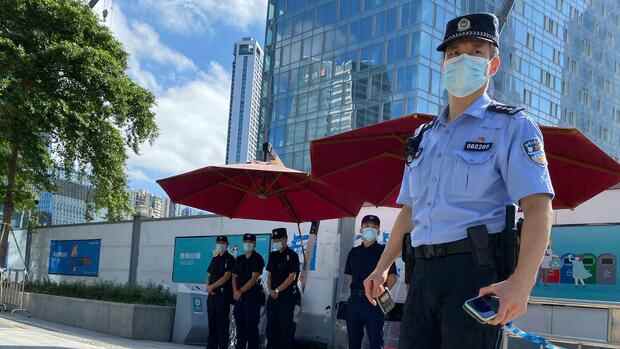However, this does not mean the all-clear in the fear of the over-indebted group. On the one hand, the second largest shareholder, Chinese Estates Holding, stated on Thursday night that it wanted to part with its shares. On the other hand, the announced partial agreement only related to domestic bonds. It is still unclear what will become of the interest payments on offshore bonds, also due on Thursday, which amount to $ 83.5 million.
“If you fail to pay today, there is still a 30-day grace period before it is registered as a default,” wrote Robert Carnell, Head of Research for the Asia-Pacific region at ING Bank, in a recent analysis expect Evergrande to take full advantage of this window of opportunity to buy time. ”In total, the company has amassed at least $ 300 billion in debt.
How things will continue at Evergrande has far-reaching consequences for the Chinese real estate market and beyond. The company operates and develops 1,300 real estate projects all over the country and employs a total of around 200,000 people. At the beginning of the week, numerous securities on the Hong Kong stock exchange and worldwide had lost value as a result of the crisis at the highly indebted Chinese real estate developer Evergrande and concerns about possible contagion effects.
Top jobs of the day
Find the best jobs now and
be notified by email.
Long-term investors are also increasingly losing confidence in the company and turning away, as the example of Chinese Estates Holdings shows. The company not only announced the planned complete exit from Evergrande – but also that it had already sold shares worth $ 32 million. Even if it has to accept high losses for this.
State rescue unlikely
Observers believe that it is unlikely that the Chinese government will step in to rescue the company, which is slipping deeper and deeper into the crisis. “Evergrande itself is not really worth saving,” says Dinny McMahon, an economic analyst at China analyst Trivium and author of a book on China’s debt problem. The company’s real value lies in its construction projects.
According to media reports, Evergrande currently has around 800 projects under construction. Around 500 of these projects have already been put on hold; the others run the risk of having to be suspended because suppliers and workers can no longer be paid.
The property developer’s projects contributed to economic growth and maintained an ecosystem of contractors and suppliers, McMahon said. In addition, it is estimated that one million people have already paid for projects that are still under construction. The implementation of the construction project is therefore a key factor in maintaining social stability. “The key is to keep these projects under construction,” stressed McMahon.
He expects Evergrande to be forced to sell its construction projects to competitors in the months to come. For those who cannot find a buyer, the local governments would step in through funds or state-owned developers.
The pressure on the real estate industry will remain
Experts believe that the main focus of debt repayment will be on domestic investors. “What seems to be emerging from all of this is a roadmap for dealing with this crisis with repayments that are focused on domestic investors,” said ING analyst Carnell.
Regardless of how the Evergrande case ends, the pressures on the real estate industry as a whole will continue. Other real estate developers in China had also run into payment difficulties in the past few months. The first analysts are therefore adjusting their outlook for the future growth prospects of the world’s second largest economy.
The rating agency Fitch announced on Thursday that it had lowered its forecast for growth in China’s gross domestic product for this year to 8.1 percent in view of the crisis in the real estate sector. She previously assumed that the Chinese economy will grow by 8.4 percent this year. The deleveraging in the real estate sector is weighing on the upswing in China, the analysis said. Macropolitics will gradually be recalibrated, but slower housing construction will weigh on domestic demand and global commodity markets.
More: Example of Evergrande: Beijing is taking a high risk with it
